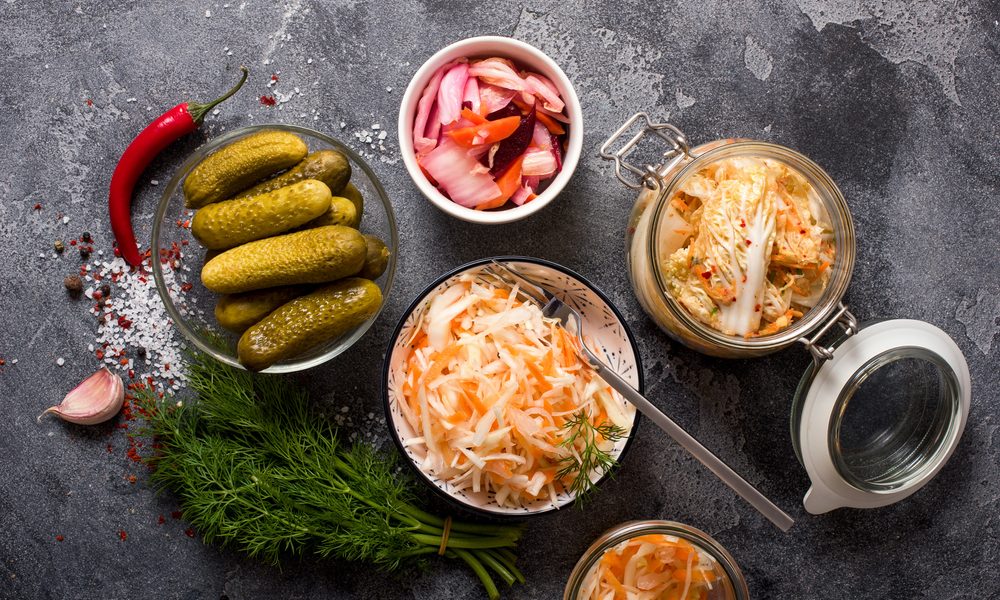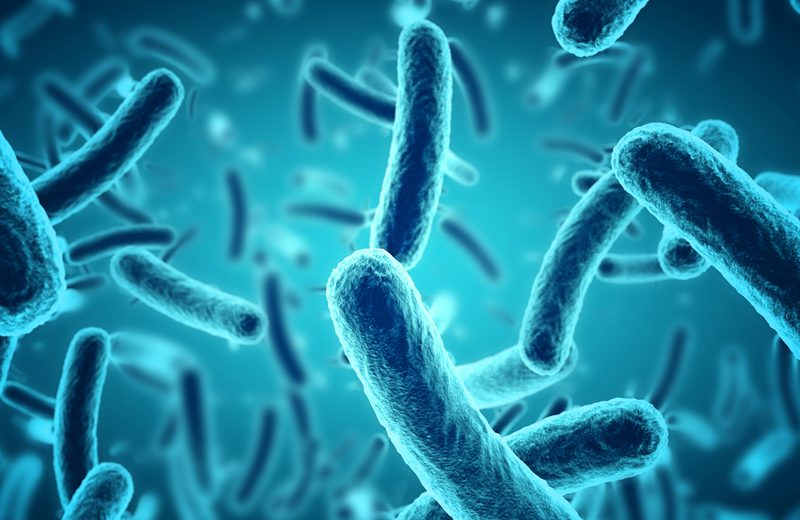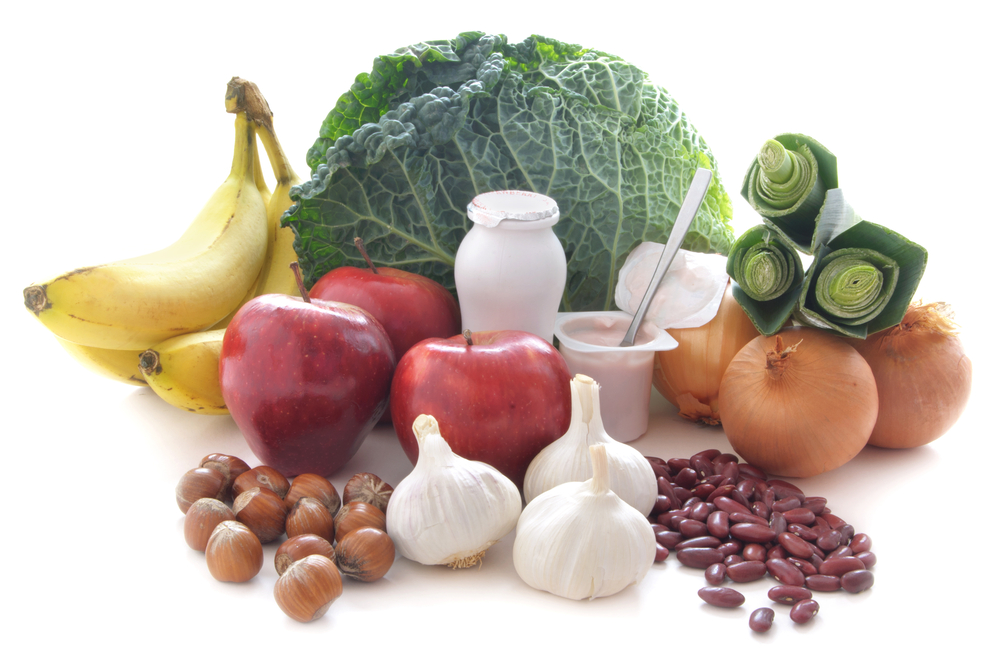
It’s Time to Learn the REAL Distinction Between Probiotics and Synbiotics

Most people are aware that certain foods like kombucha, yogurt, and kimchi come packed with numerous gut-healthy probiotics. On the other hand, other foods like asparagus, bananas, and artichokes are said to pack a mean punch of prebiotics.

paulista/Shutterstock
Probiotics are the microorganisms that add good-for-you microbes in the gut to aid the digestive process. Prebiotics are essentially nondigestible carbohydrates that feed on the gut bacteria
Synbiotics refers to the term given to supplements containing probiotic strains in addition to prebiotics. Researchers are increasingly reading from the same script, they now say that probiotics can encounter “survival difficulties” while going through the intestinal tract. Effectively, this means that probiotics do not actually find their way all through to the gut.
The general idea behind synbiotics is that the addition of prebiotics with probiotic supplements help ensure that digestion-friendly microorganisms get to the gut fully intact. The belief is that these supplements are quite useful for people with conditions like bowel disorders, IBS, and diabetes.
Moderation
While it’s true that something that aids the digestive process isn’t bad, we should take caution when picking them up from the supplement aisles. This is because most aren’t fully studied. As Cynthia Sass, a health nutrition editor explains, they currently don’t have a lot of data showing that synbiotics are actually more effective than activities like taking probiotics and the partaking of diets rich in prebiotics.

Niloo/Shutterstock
At the same time, it is important to note that nutritional supplements are generally not well regulated. Sass shared that her primary concern at the moment is the fact that there is a lack of regulation when it comes to ensuring that purchased products are actually synbiotic and effective
While it’s obviously apparent that probiotics and prebiotics are important for health, Sass shares that the focus should not simply be on the taking the products but in understanding that prebiotics do so much more than feeding probiotics, they actually help increase nutrient absorption and in the support of regular bowel movements.
Therefore, people shouldn’t assume that taking synbiotics means they don’t have to pay attention to their diet. Sass believes that the overall eating pattern has a great impact on one’s health condition or risk.
Piqued Interest

Pixelbliss/Shutterstock
The best way forward for eager enthusiasts is to consider sticking to probiotic supplements or probiotic-rich foods paired up with some prebiotic foods. They should ideally do this until comprehensive research is conducted on the everything synbiotics related
Sass gives the recommendation that when one is in pursuit of a gut-healthy meal packing both prebiotics and probiotics, suggestions like the kefir breakfast bowl coupled with a slightly green banana, srir-fry made with asparagus and kimchi, and veggie burgers topped with onion and sauerkraut, are fantastic choices.
When going probiotic shopping, the process can get a tad bit complicated because there are numerous varied products in the market. Two probiotic makers can greatly vary from one another in terms of the types of bacteria contained therein, the quantities and in the various formulations of pills or food. This means that if a group of scientists discovers that a specific brand of yogurt reduced constipation, that does not necessarily mean that any yogurts grabbed at the store will have the same effect in the end.
Google Trends analysis shows that there has been a rapid 200% increase in popularly searched food phrases such as “best foods for bloating” and a 350% increment in search results for “best foods for gut health” between 2012 and 2017 in America. The current public interest in gut health is not only hype but also mounts scientific evidence that goes to show the gut microbiome plays a key role in obesity, inflammation and a myriad of other health challenges.
More in Health & Well-being
-
`
Signs of Emotional Connection in Relationships
Building a strong connection with someone isn’t just about being in sync or sharing hobbies—it’s about that deeper bond, where you...
December 4, 2023 -
`
Hollywood’s Shortest Marriages: Britney Spears, Carmen Electra & More!
In the glitzy world of Hollywood, where fairy tales often unfold on the silver screen, there exists a flip side—a realm...
December 3, 2023 -
`
The Surprising Benefits of Unplugging
In today’s hyper-connected world, where we are constantly bombarded with notifications, messages, and the allure of social media, disconnecting may seem...
November 26, 2023 -
`
How “Looking Your Best” Improves Our Wellbeing
Most of us have had moments standing in front of our closet, deciding on an outfit for the day. And we...
November 15, 2023 -
`
Therapy? Medication? What Are the Treatments for PTSD
Post-Traumatic Stress Disorder (PTSD) is a common after-effect of traumatic events. It can be a debilitating condition, but the good news...
November 7, 2023 -
`
Meet the Woman Who ALMOST Married Barack Obama
Barack Obama’s life has been a captivating narrative, often told and retold, with each revelation adding layers of intrigue to his...
November 5, 2023 -
`
The Rise of Caviar Bumps, Thanks to Gen Z
In an intriguing twist of culinary culture, millennials and Gen Zers are drawn to an unusual indulgence – fish eggs, or...
October 28, 2023 -
`
Everything You Need to Know About Acid Reflux, Heartburn and GERD
Ever had that burning-in-the-chest sensation after a meal? Or perhaps you have lain awake at night with an odd sour taste...
October 17, 2023 -
`
Best AI Apps for Mental Health
Mental health has long been a topic of discussion and concern. With technological advancements, AI (Artificial Intelligence) has emerged as a...
October 10, 2023















You must be logged in to post a comment Login